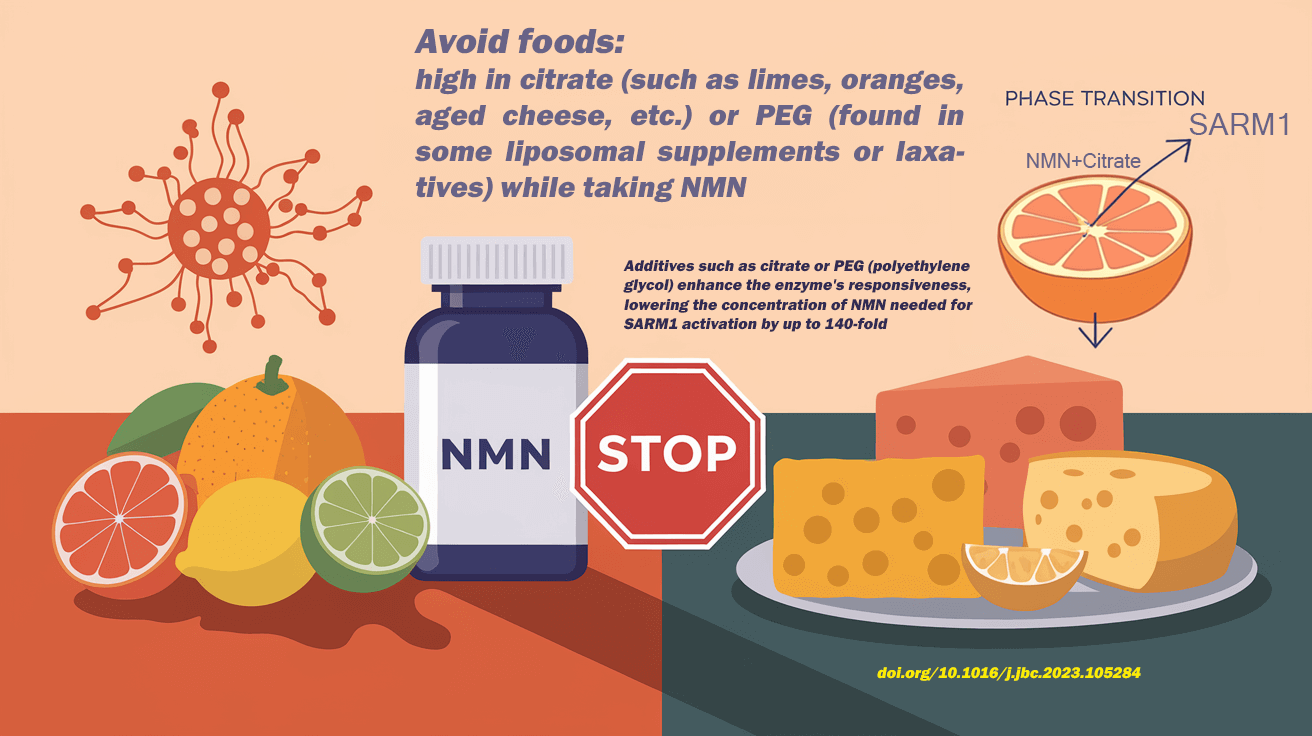Table of Contents
Rapamycin Side Effects: Why Biohacker Bryan Johnson Stopped Taking It
Rapamycin Side Effects: Why Biohacker Bryan Johnson Stopped Taking It
By Anthony Loera | 11/19/2024
In the dynamic world of biohacking and longevity research, Bryan Johnson has been a trailblazer. Known for his ambitious "Project Blueprint," aimed at reversing aging and enhancing healthspan, Johnson has experimented with various cutting-edge interventions. However, his recent decision to discontinue rapamycin due to significant rapamycin side effects has sparked widespread discussion.
Ending a Five-Year Rapamycin Experiment
On September 28th, Bryan Johnson announced on X (formerly Twitter) his decision to stop taking rapamycin after nearly five years of experimentation:
"On September 28th, I decided to stop rapamycin, ending almost 5 years of experimentation with this molecule for its longevity potential."
Johnson had tested various dosing protocols to optimize rejuvenation while limiting side effects, including weekly doses of 5, 6, and 10 mg, biweekly doses of 13 mg, and alternating weekly doses of 6 mg and 13 mg. Despite the promising results from preclinical trials, the persistent side effects of rapamycin led him to reevaluate its long-term use.
Understanding Rapamycin Side Effects
 Rapamycin, originally used as an immunosuppressant to prevent organ transplant rejection, has been studied for its potential to extend lifespan by inhibiting the mTOR pathway, a key regulator of cell growth and aging. However, Johnson experienced several adverse effects:
Rapamycin, originally used as an immunosuppressant to prevent organ transplant rejection, has been studied for its potential to extend lifespan by inhibiting the mTOR pathway, a key regulator of cell growth and aging. However, Johnson experienced several adverse effects:
- Intermittent skin and soft tissue infections
- Lipid abnormalities
- Elevated glucose levels
- Increased resting heart rate
With no other underlying causes identified, rapamycin was suspected to be the culprit. Adjusting the dosage did not alleviate these issues, leading to his decision to discontinue the drug entirely.
Scientific Evidence of Side Effects
Johnson's concerns are backed by scientific research highlighting several rapamycin side effects:
- Disruption of Lipid Metabolism: Prolonged rapamycin use can adversely affect lipid profiles, potentially increasing cardiovascular risk. (Reference)
- Insulin Resistance and Glucose Intolerance: Rapamycin has been shown to induce insulin resistance, elevating blood glucose levels. (Reference)
- Pancreatic Beta-Cell Toxicity: The drug may be toxic to pancreatic beta cells, essential for insulin production. (Reference)
- Inhibition of Natural Killer Cells: While it may slow tumor growth, rapamycin could inhibit natural killer cells, compromising anti-cancer immune surveillance. (Reference)
New Research: Accelerated Aging Concerns
Adding to the apprehension, a preprint released on October 27th indicated that rapamycin was among several supposed longevity interventions that might accelerate aging in humans across 16 epigenetic aging clocks. This comprehensive evaluation suggests that previous studies might have overlooked potential biases by focusing on limited aging markers.
Community Response: Expert Opinions
Johnson's announcement prompted reactions from experts like Chris Masterjohn, a respected nutrition scientist, who stated:
"Rapamycin DESTROYS healthspan at the same time it promotes lifespan. Bryan’s choice is wise. Lengthening lifespan in mice at the expense of fatty liver, high blood glucose, heart fibrosis, and testicular atrophy is a ridiculous basis to use for life extension in humans."
Masterjohn's critique emphasizes the trade-off between extending lifespan and maintaining health quality. The potential side effects of rapamycin could outweigh its longevity benefits, especially when considering overall well-being.
Implications for Longevity Research
Bryan Johnson's experience sheds light on the complexities of applying findings from animal studies to humans. While rapamycin has extended lifespan in mice, the accompanying health issues raise concerns about its suitability for human longevity interventions.
The potential for rapamycin to accelerate aging, as suggested by recent research, calls for a reevaluation of how we assess anti-aging therapies. It highlights the necessity for more comprehensive studies that consider a wider array of biomarkers and potential side effects.
Conclusion: Prioritizing Health Over Longevity
Johnson's decision to discontinue rapamycin underscores the importance of balancing lifespan extension with healthspan preservation. It serves as a reminder that longevity interventions should not compromise overall health.
For those interested in anti-aging therapies, his experience emphasizes the need for caution, rigorous scientific validation, and personalized medical oversight. The allure of extended life must be weighed against the potential risks and side effects of rapamycin or any other intervention.
Final Thoughts
The conversation around rapamycin and its side effects illustrates the evolving nature of medical research. As we strive to understand and combat aging, transparency and adaptability are crucial.
Bryan Johnson's openness contributes valuable insights, encouraging a broader dialogue on evaluating the risks and benefits of longevity interventions. Ultimately, this dialogue can guide us toward safer and more effective strategies for enhancing human healthspan without compromising well-being.








